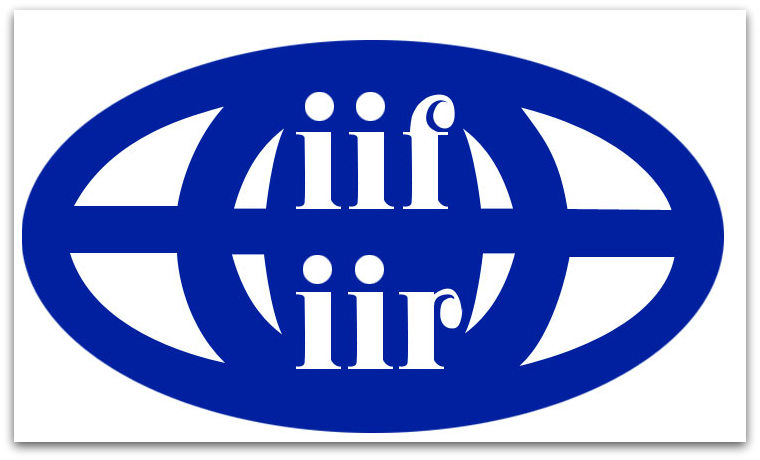Assessment of apricots suitability for shock freezing according to physical and technological quality indicators
DOI: 10.17586/1606-4313-2021-20-1-74-83
UDC 634.21:664.8.037.5
Guseinova B. M., Asabutaev Islam H., Daudova T. I.
Keywords: low-temperature freezing, refrigeration storage, apricots, moisture-holding ability, tasting evaluation, defrosting modes and methods
UDC 634.21:664.8.037.5
Assessment of apricots suitability for shock freezing according to physical and technological quality indicators
For citation: Guseynova B.M., Asabutaev I.H., Daudova T.I. Assessment of apricots suitability for shock freezing according to physical and technological quality indicators. Journal of International Academy of Refrigeration. 2021. No 1. p. 74-83. DOI: 10.17586/1606-4313-2021-20-1-74-83
Abstract
Apricots are predominant among bone crops in terms of nutritional properties, but a slight subsidence limits the period of their consumption, which can be extended using shock freezing (t = –30 °C) and refrigeration storage (t = –18 °C), thereby contributing to the year-round provision of apricots to the population. The optimal modes of freezing (t = –25; –30; –33 and –35 °C), long-term storage (t = –18 °C) and defrosting (in air, in water, and using microwave energy) of apricots of the varieties Krasnoshcheky, Uzden, Uncukulskiy pozdniy, Honobah and Shalah were experimentally substantiated when studying the dynamics of physical-physical. Juice recovery (%) was calculated by subtracting the weight of the defrosted fruit from the weight of the frozen fruit. The sensory characteristic of apricots was given on a five-point scale. The greatest losses of their juice were caused by slow freezing (t = –25 °C), and the minimum – fast (t = –35 °C). The losses of juice also changed depending on the initial temperature of fresh fruits (t = 0, 5, 16 and 22 °C) before low-temperature exposure. At all temperature modes of shock freezing, the lowest juice yield was observed when the temperature of fresh fruits was adjusted to 0 ° C before freezing. The losses of juice of fruits during defrosting increased with increasing shelf life. By the end of the nine-month storage (t = –18 °C), the apricots Uncukulskiy pozdniy, Shalah and Krasnoshcheky are classified as "good," and Uzden and Honobah are "satisfactory." Good tasting ratings – 4.2; 4.1 and 4.1 points, received apricots Shalah, Uncukulskiy pozdniy and Krasnoshcheky, respectively. They turned out to be the best in terms of physicochemical indicators. The yield of defective fruits after nine months of storage (t = –18 °C) was 90.0% (Uncukulskiy pozdniy, 92.6% (Shalah). The use of microwave treatment of apricots has proved to be a more efficient method of defrosting these fruits compared to traditional defrosting in air and water.
Abstract
Apricots are predominant among bone crops in terms of nutritional properties, but a slight subsidence limits the period of their consumption, which can be extended using shock freezing (t = –30 °C) and refrigeration storage (t = –18 °C), thereby contributing to the year-round provision of apricots to the population. The optimal modes of freezing (t = –25; –30; –33 and –35 °C), long-term storage (t = –18 °C) and defrosting (in air, in water, and using microwave energy) of apricots of the varieties Krasnoshcheky, Uzden, Uncukulskiy pozdniy, Honobah and Shalah were experimentally substantiated when studying the dynamics of physical-physical. Juice recovery (%) was calculated by subtracting the weight of the defrosted fruit from the weight of the frozen fruit. The sensory characteristic of apricots was given on a five-point scale. The greatest losses of their juice were caused by slow freezing (t = –25 °C), and the minimum – fast (t = –35 °C). The losses of juice also changed depending on the initial temperature of fresh fruits (t = 0, 5, 16 and 22 °C) before low-temperature exposure. At all temperature modes of shock freezing, the lowest juice yield was observed when the temperature of fresh fruits was adjusted to 0 ° C before freezing. The losses of juice of fruits during defrosting increased with increasing shelf life. By the end of the nine-month storage (t = –18 °C), the apricots Uncukulskiy pozdniy, Shalah and Krasnoshcheky are classified as "good," and Uzden and Honobah are "satisfactory." Good tasting ratings – 4.2; 4.1 and 4.1 points, received apricots Shalah, Uncukulskiy pozdniy and Krasnoshcheky, respectively. They turned out to be the best in terms of physicochemical indicators. The yield of defective fruits after nine months of storage (t = –18 °C) was 90.0% (Uncukulskiy pozdniy, 92.6% (Shalah). The use of microwave treatment of apricots has proved to be a more efficient method of defrosting these fruits compared to traditional defrosting in air and water.
Keywords: low-temperature freezing, refrigeration storage, apricots, moisture-holding ability, tasting evaluation, defrosting modes and methods












